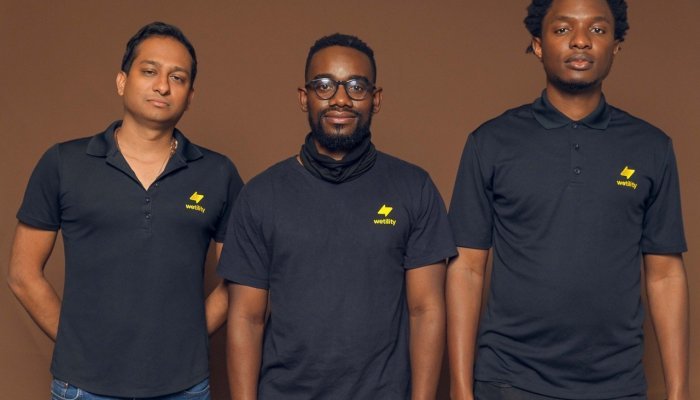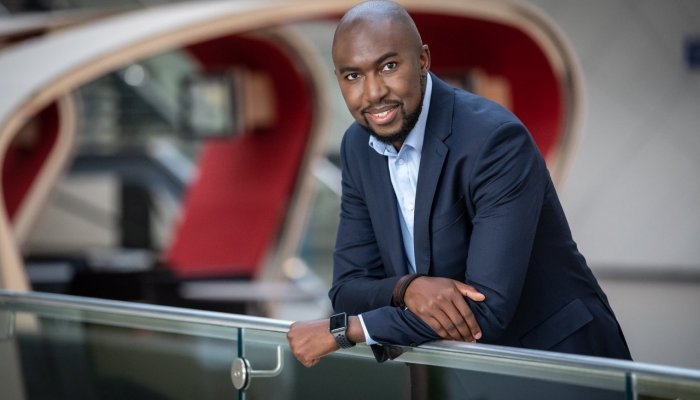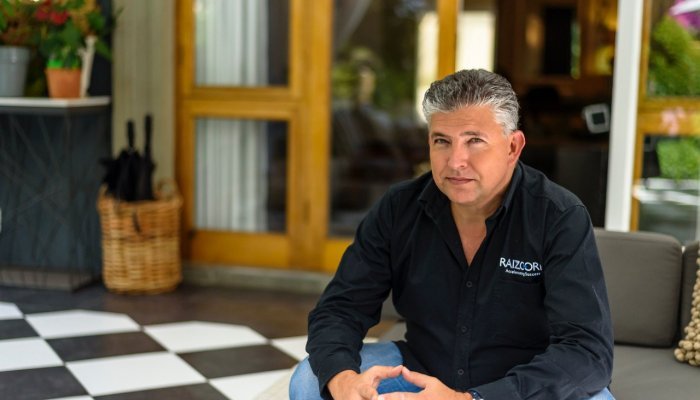Innovation – the art of creating something new or doing things differently to make life easier – has been around for ages.
Well-known innovators have one thing in common: they see the world differently, and want to simplify life, work and play.
In 1876, Alexander Bell invented the telephone. Since then, we’ve had more or less continuous innovation in the communications sphere and now have mobile devices.
Jeff Bezos founded Amazon.com, a company that has revolutionised e-commerce. Shopping online is a button away from your mobile phone.
Today, innovation is seen as a differentiator in many sectors of the economy. Big and small businesses are also doing their part to uplift communities to become economically sustainable.
Some of these innovations aren’t as big as inventing the telephone, but they do have a social and economic impact on the lives of ordinary people.
The rise of innovation and incubator hubs
In South Africa, as in many parts of the world, the public and private sectors have designed hubs to help nurture innovators by providing resources they wouldn’t have accessed otherwise. Some hubs focus solely on research to help drive innovation forward, while others make money by bringing value-added products or ideas to the market. Ultimately, the goal is to find solutions to everyday problems.
Despite challenges such as low economic growth, infrastructure constraints and access to capital, many entrepreneurs thrive thanks to innovation/incubator hubs.
Described as Africa’s most successful business incubator, Raizcorp is a profit-making incubator that has been sustainable for 22 years. It focuses on developing, training and accelerating entrepreneurs and also helps governments and developmental agencies set up entrepreneurial infrastructure at country level, says CEO, Allon Raiz.
Raizcorp programmes last anywhere from four weeks to three years and are run by a dedicated full-time team of guides and mentors. The programmes provide extensive entrepreneurial learning and mentorship in strategy, finance, sales, marketing and personal development.
Some programmes offer additional benefits such as back-office support, bookkeeping, the use of incubator infrastructure, specialists and access to markets for their products and services.
In partnership with the Department of Trade, Industry and Competition, Galelo Africa and Companies Creating Change (C3), the MultiChoice Group has established the MultiChoice Innovation Fund (MIF) accessed through the Accelerator Programme.
“It aims to connect entrepreneurs in sectors including HealthTech, FinTech, EduTech, circular economy and the creative industries with global investors to unlock business opportunities,” says Collen Dlamini, executive head for corporate affairs at MultiChoice.
He says the programme attracted 168 applicants; 40 were chosen to present, and 20 were then selected to participate in the programme, which started in September 2021. These also included five from the MIF portfolio, with only six shortlisted as finalists that went on to pitch to an international investor panel.
Participants had to attend 26 hours of intensive virtual boot camp training on business fundamentals with exposure to expansion and capital raising opportunities. This was followed by a live pitch day to industry experts and investors.
MultiChoice allocated over R37 million in assisting the SMMEs with grants, loans, business support and resources, says Dlamini.
“The programme is a launching ground for SMMEs with great growth potential, and MultiChoice identifies these entrepreneurs backing them up through investments to be an instigator to attract even more opportunities for the entrepreneurs,” says Dlamini.
Mining group, Anglo American, established Zimele in 1989 to support small businesses in various communities, with more than 3,700 receiving support.
“Our hubs focus on supporting SMMEs and the youth through up-front mentorship followed by funding opportunities,” says Larisha Naidoo, head of Zimele at Anglo American.
Naidoo says that apart from the limited funding resources within their host communities, access to markets and technical ability to deliver on contracts are the main challenges facing entrepreneurs and small businesses.
To this end, Zimele has partnered with various institutions, including the South African Institute of Chartered Accountants (SAICA) for finance-related learning, Tjeka TVET College to build technical capabilities and Caliba to help entrepreneurs and businesses, to better understand the tender processes involved in the awarding of work contracts.
Funding
Access to funding is one of the biggest challenges facing entrepreneurs and innovators, hindering the growth and development of small, medium and micro enterprises (SMMEs) in South Africa.
Naidoo says that of the 3,700 businesses that have been supported by Zimele, a third of those were assisted between 2018 and now. From 2018, Zimele’s loan funding reached R319 million, and in 2021 alone, this amount was R131 million.
The programme is aimed at suppliers who provide goods and services to the group’s mining operations, such as contractors and sub-contractors, transportation operators and personnel services.
She explains that this budget is in line with the needs of the Anglo American business divisions, including Kumba Iron Ore, Anglo Platinum and De Beers. The funds are administered on their behalf. To qualify for loan funding, businesses must also be based in communities where Anglo American’s operations are located.
Apart from the loan funding programme, Zimele offers business coaching, mentoring and access to markets through the Supplier Development Programme, Enterprise Development Programme and Youth Development Programme.
“These programmes aim to ensure that these businesses are economically viable and with the potential to create sustainable jobs in our host communities,” says Naidoo.
She says that for the last three years, Zimele has been implementing a workforce readiness programme for youth, thus enhancing young people’s chances of being employed while boosting their entrepreneurial development.
Zimele has partnered with Reach Summit to offer tailored, sector-specific skills development programmes to youth training programmes. These will target the tourism and hospitality, and retail sectors – two sectors that are high in demand for jobs.
Raizcorp does not provide funding to entrepreneurs on its incubation programmes, although it does assist with funding from its curated capital division, Partner Elite. The company looks to partner with businesses that can scale. In turn, they will support these businesses with access to markets, capital, and mentorship in business operations and talent management.
“From experience, entrepreneurs who have participated in any of our programmes are more likely to receive funding from banks and other funders,” says Raiz. He adds that a big proportion of the incubator’s income is derived from the dividends and fees paid by successful entrepreneurs in Partner Elite.
Attracting global capital
In January 2022, the MultiChoice Accelerator Programme selected six SMMEs to pitch their innovative ideas to the global start-up investment community as part of its World Expo participation in Dubai.
Selected companies include EM Guidance (digital healthcare platform), Lightbulb (management systems provider for virtual learning and training), Swypa (township consumer delivery service), Whoosh (payment technologies provider), Wetility (hybrid solar solutions provider) and IT Thynk (information and communications technology services and gaming technologies provider).
“MultiChoice has invested R52 million made up of grants, resources, and business support towards the shortlisted companies ahead of their final pitch to the global investor panel,” points out Dlamini, who explains that participating in the World Expo challenged entrepreneurs to step out of their comfort zones, and think out of the box.
They had to dig deep to prove their business cases, explain the local context, and showcase commercial viability. This exercise also provided MultiChoice with valuable insights into what needed to change or be added to current training offerings, like thinking about global business as a local village.
Are innovation and business hubs effective?
Dlamini believes the MultiChoice Accelerator Programme is effective because the company understands that the SMME sector has a critical role in creating jobs in South Africa. With high unemployment rates in the country, MultiChoice wanted to make a difference. Creating a platform for up-and-coming South African entrepreneurs to raise more capital for their businesses led to unlocking much-needed employment opportunities for others.
“Collaborations and partnerships within the private sector and the government are essential in building programmes that develop skills and enable entrepreneurs and businesses to access capital from a wider pool of key networks,” says Dlamini.
Already, entrepreneurs are confident in approaching capital raising pitches and follow-up with some of the investors. They’ve also established a network of other entrepreneurs to share knowledge and key learnings.
“This is just the beginning for entrepreneurs to move and grow their businesses further,” says Dlamini, adding that the ongoing MultiChoice Innovation Fund programme has recently opened for applications. “We will continue to actively look for strategic partnerships and opportunities to support South African entrepreneurs and small businesses.”
Success starts with solid businesses
Raiz says successful businesses are what make an incubator successful, and should enable entrepreneurs to grow profitable, sustainable businesses that thrive over the long term.
“Incubators should never encourage any form of dependency. Thus, a one-size-fits-all approach to business development cannot work.”
He says highly skilled, experienced and dedicated teams with a shared passion for helping entrepreneurs succeed will help guide entrepreneurs on their journey.
Raizcorp uses a rigorous selection process to choose the right staff and the right entrepreneurs who are willing to go the extra mile to succeed. Furthermore, successful incubators should encourage entrepreneurs to become part of their broader entrepreneurial network and mutual support system.
“At Raizcorp, we strongly believe that only for-profit organisations can authentically support entrepreneurs and entrepreneurial businesses to become profitable and sustainable,” says Raiz.
Considering the number of entrepreneurs and jobs created through Zimele, Naidoo says the programme is successful and effective in achieving its goals.
In November 2021, Zimele won the Youth Focus Award and the Impact Award at the 4th Absa Business Day Supplier Development Awards. Zimele was also runner-up in the Overall Winner category.
“This recognition is a testament to our commitment to building thriving, inclusive and healthy communities through our youth, supplier and enterprise development work and the impact that these efforts have on beneficiaries,” says Naidoo.
Growth opportunities within innovation and business hubs
Focus on youth: Together with 3M, our youth development programme ran innovation boot camps equipping young people with creative thinking, innovation tools and ways to assist them in unlocking existing economic opportunities in and around their communities. The feedback has been positive, and we believe these interventions go a long way in keeping youth out of trouble and contributing meaningfully to their communities and economy with the right guidance.
– Larisha Naidoo, head of Zimele at Anglo American
Corporate venturing: When corporates incubate ideas and new business opportunities internally, this has huge potential to accelerate the work being done by innovation and business hubs. For example, Discovery and OUTsurance were supported, incubated and funded through the Rand Merchant Bank group and set up within their infrastructure. Raizcorp supports corporates in the execution of corporate venturing.
– Allon Raiz, Raizcorp CEO
Unearthing and nurturing talent: Our programme enabled us to tap into entrepreneurs with vast potential but in need of coaching and funding. The rigorous process of showcasing entrepreneurs to international investors has been a learning experience; hence we’ve elevated the programme support tools for global agility.
– Collen Dlamini, executive head for corporate affairs at MultiChoice Group
Raizcorp
Quick stats
- In the past 22 years, Raizcorp has acted as a venture capitalist and invested in approximately 40 businesses in its curated capital division, Partner Elite.
- Nearly 13,500 businesses have graduated from the full incubation programmes.
- Around 10,000 have participated in other entrepreneurial programmes.
- Over 500 businesses are given support on current business programmes at any given time.
Zimele
Quick stats
- Since launching its revised strategy in 2018, Zimele has disbursed R319 million in loans to entrepreneurs and small businesses with a 96% loan repayment rate.
- Jobs supported: 10,363
- Youths placed into direct jobs: 277
- Training sessions completed: 672
- Mentorships completed: 19,049
- Supplier, enterprise and youth beneficiaries in Zimele programmes: 2,715
- Percentage of participants who are women: 48%
- Youth account for 45% of the enterprise and supplier development programmes.
- R21 million in government relief funds were facilitated as part of the Covid-19 relief resulting in the survival of 98% of businesses.
MultiChoice Accelerator Programme success story
Founder and CEO at Wetility, Vincent Maposa, who is also an engineer, uses technology and innovation to find innovative energy solutions. Wetility is a rooftop solar PV technology company that uses the sun to generate power, creating optimal capacity for freehold homes, sectional title properties and commercial buildings.
Maposa started the company in 2019 in response to the energy crisis in the country. It began as a tech-enabled solar energy company to empower people and businesses to efficiently solve their electricity needs. Wetility manufactures and sells solar panels, solar energy storage and software electricity management systems.
They joined the programme with a high potential pipeline but without the financial muscle to execute. However, through the MultiChoice Innovation Fund’s R13.5 million investment, Wetility has unlocked its sales pipeline and attracted international investor interest.
Dlamini says the company’s fast expansion is a reminder that MultiChoice has the platform to tip businesses over into great successes.













